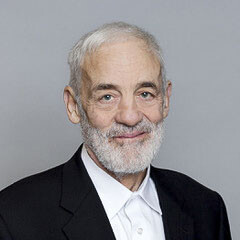Vancouver resident Robert Wallis shares his claim that WSDOT and ODOT have failed to provide the public with honest information regarding a proposed tunnel solution for the I-5 Bridge replacement project
Editor’s note: Opinions expressed in this letter to the editor are those of the author alone and do not reflect the editorial position of ClarkCountyToday.com
Thank you Clark County Today for your coverage of the tolling issues related to the Interstate Bridge Replacement (IBR) project. Although I am writing about the tunnel issue, that issue has one thing in common with tolls – the failure of WSDOT and ODOT to provide the public with honest information. In doing so, they are undermining the integrity of the process that ensures the public gets value from their tax dollars.

It has recently come to light that the public was deceived by the IBR project team into believing that the tunnel option was not feasible. The question is – will that same deceit be brought to bear upon the tolling issue?
The IBR project team’s deceit regarding the tunnel is addressed in the “tunnel too deep” engineering report available on my Linkedin site (Robert Wallis in Vancouver, Wa.). In essence, they made an engineering error (very likely on purpose) which greatly exaggerated the tunnel depth. That error made the tunnel option appear way more expensive than it would otherwise be. That “tunnel too deep” error also made the connections to Downtown Vancouver unfeasible, which was the primary reason the tunnel option was never given serious consideration.
My concern is that the IBR project team may attempt to deceive the public and their elected officials on tolls the same way they deceived them on the tunnel option. I just hope someone pays enough attention to notice. I think the tunnel versus bridge issue is important, but the fact is that the toll issue is even more important, which is why I appreciate the attention being given to it by Clark County Today. With that attention, perhaps the tolling decision will be made on the basis of fact, instead of fiction, as was the case with the decision to reject the tunnel as a viable option for the IBR.
Robert Wallis
Vancouver
Also read:
- Opinion: OIC tells consumers not to pay for ‘insurance’ you won’t likely benefit from: Does that include WA Cares?Elizabeth New (Hovde) of the Washington Policy Center believes you should consider yourself warned by the Office of the Insurance Commissioner about WA Cares and its maybe-only benefit.
- Opinion: Same road, different speed limit?Target Zero Manager Doug Dahl addresses a question about speed limit signs going into and leaving town.
- Opinion: Hiding the growing cost of the Interstate Bridge replacementJoe Cortright of the City Observatory addresses the rising cost of the Interstate 5 Bridge replacement project.
- Letter: ‘This election I am NOT voting for Greg Cheney’Clark County resident Wynn Grcich shares her thoughts on Rep. Greg Cheney and the issue of fluoridation in area drinking water.
- POLL: Should biological males who identify as females be allowed to compete in athletic events against biological females?Should biological males who identify as females be allowed to compete in athletic events against biological females?










